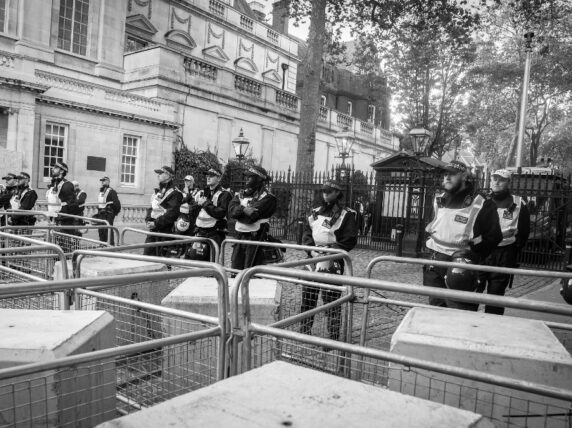Political attempts to stifle campaigning are backfiring – but charities still need to respond
Every year, the Sheila McKechnie Foundation (SMK) takes the temperature of campaigners around the UK.
They come from organisations of all sizes, local and national, paid and unpaid. What they all have in common is that they will be affected in some way by the legislation coming out of Westminster and the political rhetoric that disdains campaigning.
Recently, we’ve seen criticism of charities for doing their jobs, frivolous complaints to the Charity Commission, legislation designed to limit protest, judicial review and democratic participation. Looking at the bigger picture, judges, journalists and lawyers have been abused for holding government and others to account and upholding the rule of law. The discussion of the systemic causes of racism by schools has been described as “extremism” and independent institutions like museums and galleries criticised for engaging with such ideas.
So, of course, we expected this year’s survey responses to touch upon these issues and more. Civicus Monitor has already placed the UK on a watchlist because civic space (or, more plainly, people’s ability to influence the decisions that shape their world) is shrinking at a concerning rate. Campaigners are thinking about how to continue to campaign as well as respond to growing restrictions.
We hoped we would see evidence that organisations were resisting the urge to withdraw into their shells in the hope of avoiding criticism. What we found was much more reassuring – campaigners are now more likely to speak out than they were a year ago.
Some politicians are certainly becoming more hostile. Seventy-nine per cent said that attitudes among politicians towards civil society campaigning had become more negative in the past year (up from 63 per cent in 2020). Around half said the media had become more negative (a similar figure to 2020). And that’s certainly having an impact on how change-makers and campaigners are feeling. As one said:
“They make me feel nervous. I carry these stories in my mind as I’m engaging with decision-makers; I feel the weight of them.”
Just under half predicted that the latest legislation, the Police, Crime, Sentencing and Courts Bill, the Judicial Review Bill, and the Elections Bill, will have a direct, negative effect on their work – either stopping it, dramatically reducing it, or making it more difficult or expensive. Not a single respondent predicted that any of this legislation would have a positive effect on campaigning.
Subscribe to our newsletter
Our weekly email newsletter, Network News, is an indispensable weekly digest of the latest updates on funding, jobs, resources, news and learning opportunities in the international development sector.
Get Network NewsSo, why are these attempts to stifle debate backfiring? It seems that many campaigners have been taking the time to think, reflect, and get their houses in order.
There’s anecdotal evidence that organisations are responding to hostile rhetoric, whether aimed at them or their peers, by contemplating more deeply why they campaign and the role it plays in their mission. They are paying greater attention to risk and strategy ‚Äì and are starting to recognise that simply keeping quiet can be a risk in itself. They are apprising themselves of the rules and asking, “what can we say ‘yes’ to?” rather than “what do we want to avoid?”.
As a result, they feel stronger, more confident, and better equipped to resist misplaced criticism. One said:
“The attacks made us invest a lot of time in getting our engagement right, we felt like we were on a tightrope and some powerful people were willing us to fall…[but] the strategic review that resulted probably made us more focused and stronger.”
At the end of the day, politics isn’t and has never been the sole preserve of political parties. Whether it’s people organising locally for better transport, or nationally to fight systemic racism and tackle climate change, campaigning is a vital aspect of our democracy.
We’re all in a continuous political conversation – with our friends and families, on the bus or down the pub – whenever we encounter a decision we disagree with or when we believe we have a solution, we think should be heard.
Campaigns are the organised action that comes out of those conversations and charities have the right, and arguably the duty, to be part of that action when the situation warrants it. They also have a duty to do so consciously, thoughtfully, and in pursuit of their mission.
If you haven’t already, it’s time for campaigners, senior managers and boards to have a conscious conversation about the role of campaigning and advocacy in their mission, to fill gaps in their knowledge, and to approach risk in full recognition of the consequences of keeping silent.
The annual survey of 118 campaigners and activists was conducted between 18 October 2021 and 18 December 2020. You can see the full results here.
Category
News & Views



